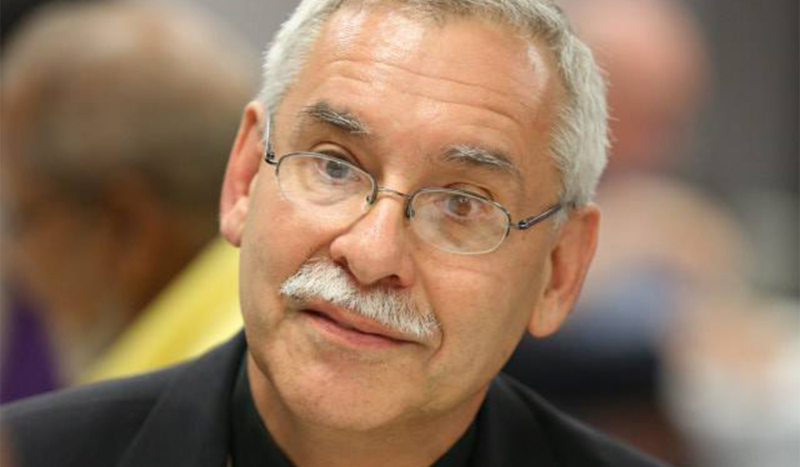
Photo Credit: EthicsDaily.com / Facebook
CV NEWS FEED // On the third Sunday of Lent, an Arkansas bishop called his parish to use the penitential season to check on their behaviors to see what they need to change in their lives.
Bishop Anthony B. Taylor delivered his homily, which was later published by Arkansas Catholic, reflecting on the gospel reading for the day, Luke 13:1-9. Bishop Taylor explained that people used to believe that if bad things happened to people, then they deserved it because they were sinners. However, Jesus responded that if tragedy is the punishment for sin, we will “all come to the same end unless (we) reform.” The bishop explained that if people don’t make changes in their lives, they will not be able to produce fruit worthy of the Lord.
Bishop Taylor shared an analogy to illustrate his point.
“In business, it’s not enough that employees avoid bad behavior; they can also be terminated for failing to produce, failing to meet their quotas,” he said.
He related this to the second half of the gospel reading, which is about the fig tree.
“Jesus’ teachings here apply directly to the goals and purpose of Lent: that we reform our lives and begin to produce good fruit worthy of the Lord,” he said. “The Kingdom of God is open to everyone, but there are standards, conditions of membership.”
The bishop explains that just as in a job setting, Jesus hopes we will follow the rules and guidelines that he sets up, and that if we don’t, we will be able to change our behaviors by the “write-ups” he gives us.
“Jesus’ hope is that once we know the rules and what the job expectations are — and the consequences of non-compliance — that we’ll get with the program right away,” he added.
Bishop Taylor said Lent is a time to change Arkansas bishop: ‘Get with the program’ for Lent before it’s too late the sinful behaviors we have “made peace with.” He invited his congregation to ask themselves, “What kind of fruit is your life producing right now? Is it fruit that you’d be proud to present to the Lord on Judgment Day? Is it the fruit of kindness, compassion, generosity, and self-sacrifice? Or the fruit of pride, jealousy, greed, and selfishness?”
Bishop Taylor ends his homily message by noting that Lent is a time to look inside oneself, ask these questions, and correct sinful behaviors.

